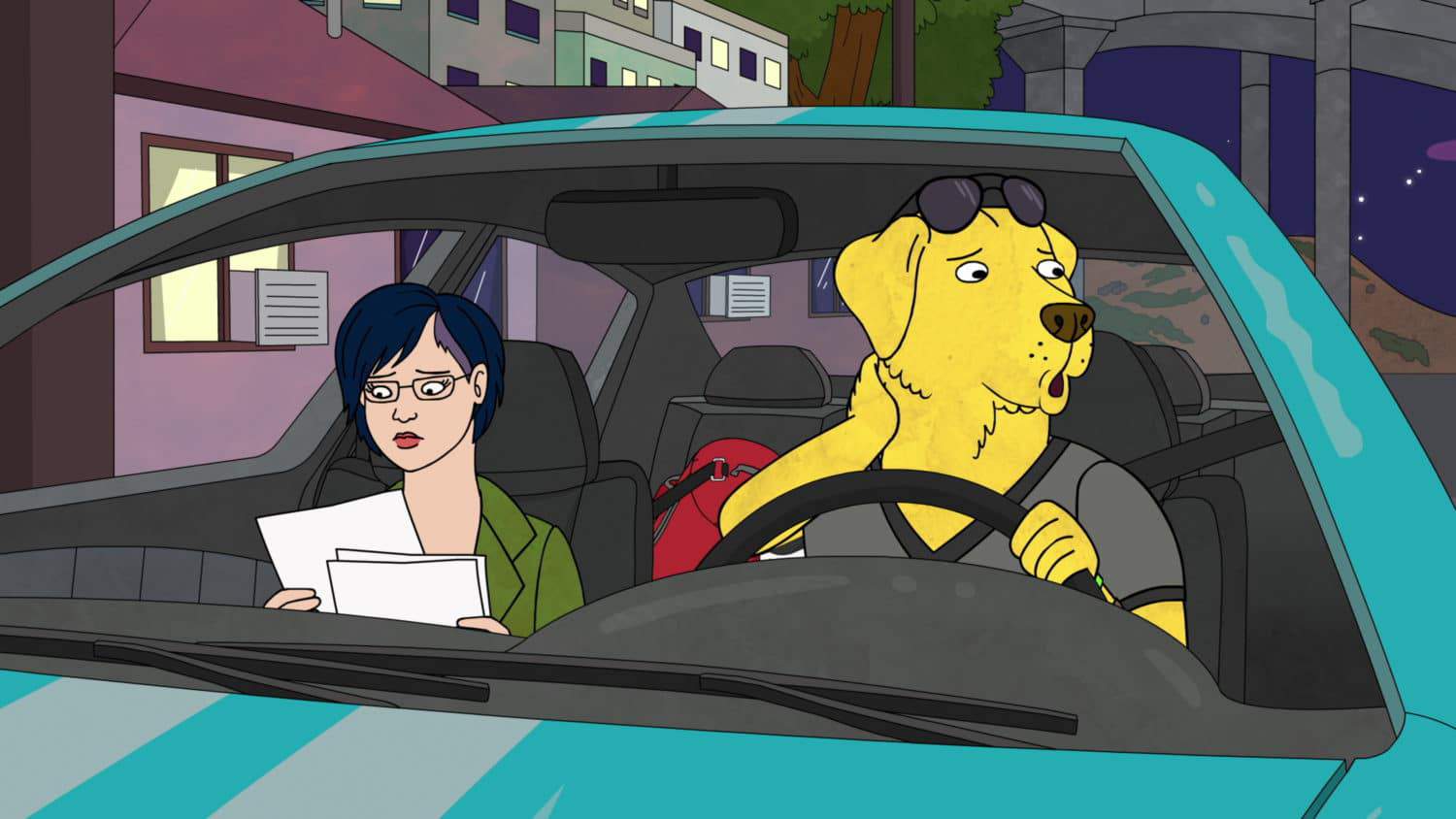The #MeToo movement is a hot topic on many shows’ dockets this year, but BoJack Horseman is on the front lines in a way the others aren’t.
Its very premise is something of a #MeToo story. Set in the entertainment industry, its star is a middle-aged male actor with a dubious past and an equally dubious present. He’s an antihero who embodies the exact sort of person who’s come under scrutiny in the past year.
So what do you do when this is your show? You don’t abandon your character. (BoJack is not, after all, a real person for the show to cut ties with. No wrongs have actually been committed). But you can’t make him artificially more likable, either. You can’t change the way he handles himself, and you certainly can’t expunge his past.
What do you do if your star suddenly embodies a character type that has become (rightfully) maligned?
You do precisely what BoJack Horseman does, that’s what.
The new season of BoJack Horseman doesn’t reference the #MeToo movement by name, but it doesn’t need to. In fact, it’s easy to imagine that a direct take on it would cheapen the whole effect, which instead explores and embodies the entire experience of a Hollywoo(d) dominated by tone-deaf male narratives, both in front of and behind the camera.
The season begins with the filming of Philbert, BoJack’s new show that bears unsettling similarities to his own life. As showrunner Flip McVicker (Rami Malek) assures him, Philbert is just a tv show, and the eponymous lead is just a character. There are no deliberate parallels to be drawn with BoJack’s own story. Absolutely none. Where’d you get that idea?
Of course from BoJack’s perspective, he’s a real person looking for analogies for his real sense of self. But to us, he’s another character on another show. We’re judging not just his decisions in-universe, but also the Netflix series’ decisions to portray him the way it does. We have a whole extra level on analysis at hand.
It’s a masterful stroke, and one that works very much to the show’s advantage.
That’s because BoJack Horseman holds no punches in its examination of both its lead and itself. Just as the BoJack Horseman creative team surely does, the Philbert team grapples with what it means to produce a show that, while it might not necessarily glorify certain kinds of behavior, at the very least normalizes it.
In an early episode, a harried Diane tries to explain the double-edged sword of this normalization in media, as BoJack makes a brief but earnest attempt to embrace feminism. On its own, the episode feels a tiny bit flip. But BoJack Horseman doesn’t really do flip anymore, and elements of that episode pay dividends as the season wears on. Pay close attention to that episode. You’ll be glad that you did.
The new season manages to confront BoJack’s problematic existence, as well as its own representation of him as its hero, and it does it very, very well. Where outright condemnation or forgiveness might be easier (and is asked, even begged for), the show doesn’t allow for it. There are no simple answers, and problems, like people, don’t just go away.
There’s more to the season, of course, and what’s been gradually becoming an ensemble cast is one now more than ever. We watch as Todd navigates his newfound asexuality, Diane and Mr. Peanutbutter navigate their divorce, and Princess Carolyn navigates the adoption process. These disparate arcs intertwine and impact each other in ways that aren’t immediately evident but leave lasting marks, making for a plot that’s both intricate and beautifully real.
It’s also still artistically and creatively bold. Nothing manages to top last season’s “Time’s Arrow,” but probably nothing ever will, and that’s okay. Episode 6 is far and away the standout this year, and should just be watched without any further explanation. And of course, the show’s still funny. BoJack Horseman is, supposedly, still a comedy, and it still trades in that brand of overwrought joke that’s so particular to it and that, with each year, stands out more strikingly against its deeply impactful storytelling.
Because more than anything, the new season is dark. Don’t let the positive note of season 4’s finale fool you — it’s very, very dark.
But God is it good. With its fifth season, BoJack Horseman continues to reign as one of the grimmest, most conscientious, most innovative shows ever produced. But that’s almost par for the course by this point. Where it really astounds this year is in its ability to confront its own demons, not just in passing but in a complex dialogue that lasts its full twelve episodes. The show turns the lens on itself, and it comes out a little battered but so much the better for it.
It proves itself extraordinary in ways unthought of until now, and it cements itself even further as an absolute treasure of modern television. It’s good, good stuff.
BoJack Horseman season 5 drops September 14th on Netflix.

